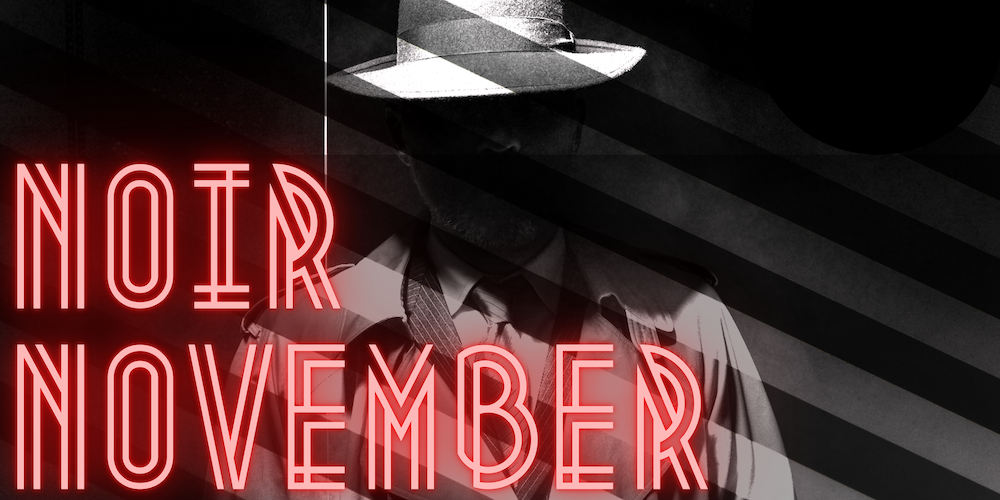Noir November: Blade Runner 2049
Written by Cameron Geiser
Every day for the month of November, Cameron Geiser is reviewing a noir film (classic or neo) for Noir November. On the last day, we have the modern neo noir opus Blade Runner 2049.
Blade Runner 2049 released thirty-five years after the original Blade Runner hit cinemas in 1982. Ridley Scott’s film may not have done all that well in its box office run but has since become a titan of science fiction influence grasping through the decades to expand its drudgy, wet, and dismal reach. A sequel to Blade Runner could have been a cash-grab from a greedy, blockbuster obsessed studio but much to the relief of fans of the original, and newcomers to the franchise, 2049 stands apart from the original in scope and sensibility and yet feels entirely part of the world that Ridley Scott brought to life decades ago. In short, this sequel is as good as anyone could have hoped for and a brilliant film in its own right.
This is a film that deserves a second viewing, almost near demanding the audience of it in order to digest everything that we’re presented with. Luckily, the film is gorgeous and a beautiful spectacle to behold. The sights and sounds of this film are why I go to the movie theater. This was an absorbing film experience. Roger Deakins, the cinematographer of the film, has earned the praise he so readily deserved with this one. In this version of the future Los Angeles, it snows. The mountainous monoliths of architecture feel familiar, yet dwarf the landscape of the original in this labyrinthian cyberpunk hellscape. The encroaching tendrils of mother nature are kept at bay with gigantic walls to bend the ocean to our will. Overbearing and frequent snowplows meander the street pushing heavy wet snow out of the way, and when it rains; it pours a near never ending deluge of water.
The score is a huge part of the immersion in this film as Hans Zimmer and Benjamin Wallfisch insert enough auditory callbacks to the bellowing synth of the original while also playing with some powerful tones that reminded me of a sort of Mongolian throat singing crafted to foster a sense of inescapable doom. I really loved that the film was perfectly happy to let a quiet scene play out in contrast to the overwhelming score in other scenes. The way Deakins and Denis Villeneuve frame each scene is a treat every time there's a cut to a new location or new character. It’s a cinematic euphoria of colors and movement. Not to mention the exquisite use of lighting, shadows, and silhouettes. So, the film is beautiful– but does the story serve this visual feast?
An example of the beautiful cinematography in Blade Runner 2049.
Yes. I will leave all spoilers to be discovered upon viewing as that’s how I saw the film and my experience was that much richer for it. What I will say though is that as far as the performances go, every actor and actress pulled off believable, charming, brooding, and menacing roles that fit the world and the story perfectly. Some have criticized Jared Leto’s performance as “just another weird role from him” and while his character is definitely egotistical and over-the-top, that’s just part of the character’s personality and it makes sense given the context of the film. I see no major faults in any of the performances, they fit the mold, and more importantly “the feel” of Blade Runner. Particularly surprising and equally delightful were Ana de Armas as Joi, the artificial love interest of Ryan Gosling’s officer K, and Sylvia Hoeks as Luv, the fierce and terminator-like replicant servant of Jared Leto’s Niander Wallace. Both women showed off strong and powerful performances that helped to tie everything together in a painful and lonely punch to the gut.
Speaking of which, Ryan Gosling’s performance as Officer K is the linchpin of this whole film, if he couldn’t sell his character’s story as efficiently as he did, the film would have fallen apart. He also gets his fair share of being on the wrong end of many fists throughout the story. Of course Harrison Ford cannot be forgotten either, he may have given us the best performance so far in this era of character revivals and reboots. He wasn’t overused and he was absolutely integral to the plot in a way that was far bigger than I had expected out of this story. Lastly, it must be said, who doesn’t love Dave Bautista and how he has grown as an actor in recent years? His role here as Sapper Morton was touching while retaining the fact that he’s a force to be reckoned with.
There is a large effort here to posit many philosophical questions about the nature of life and humanity, and while the film doesn’t always answer what it asks– it ponders them with considerable thought. There is, of course, the premise from the first film that still holds a place in the story questioning what it is to be human. 2049 expands on a deeper analysis of similar topics. What is the cost of slavery, and subsequently what does it mean to be free? What is a soul, and how do we decide who has one? Does that mean that humanity is “better” than the machines who experience life almost as equally as we do? What is an identity? What is real, and does it even matter? This is postmodernism at its peak. The film also cleverly litters a litany of literary references throughout the runtime that will likely delight those that recognize the prose of Nabokov’s Pale Fire in a $150 million dollar science fiction film. From Treasure Island to Peter and the Wolf and the work of Charles Dickens, the film steeps itself in remnants of our past to better situate itself as an awful outcome of our own history.
Blade Runner 2049 is the perfect sequel. It's one that respects and acknowledges the first film's story, characters, and world. But more importantly it expands on the ideas presented in the first film. It has its own story to tell and it tells it well. It's also just a damn good Neo-Noir on top of everything else I just said. The isolation and paranoia are intact, with a formidable femme fatale in Luv, and an ending that's satisfying and foreboding, what more could you ask for?
*I'd also like to take a moment and thank you for joining me on this month-long quest to watch and discuss these thirty Noir films this November. It was truly an honor. Now, go watch some movies!
Cameron Geiser is an avid consumer of films and books about filmmakers. He'll watch any film at least once, and can usually be spotted at the annual Traverse City Film Festival in Northern Michigan. He also writes about film over at www.spacecortezwrites.com.






